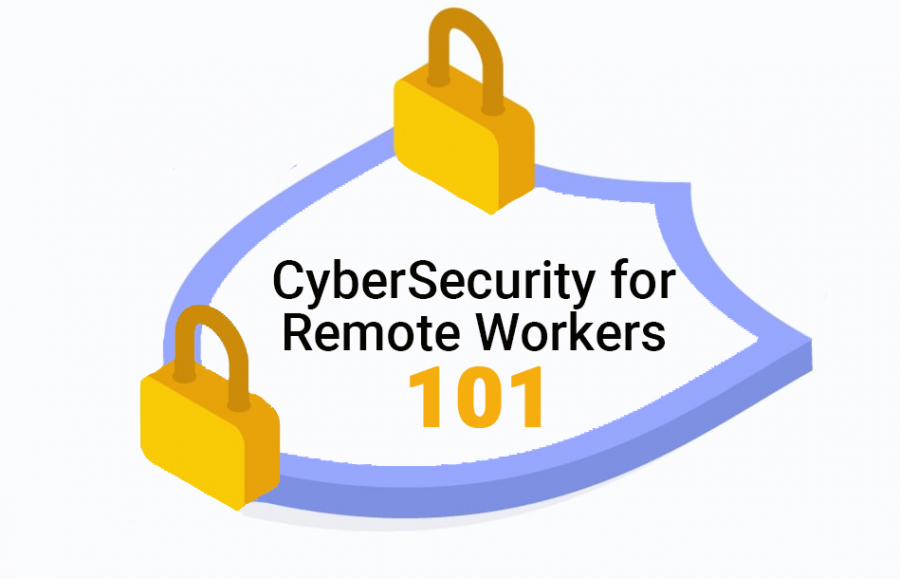
Cybersecurity for Remote Workers: How To Limit Data Leaks in Remote Teams
Data leaks are big news. Not only can they be costly in terms of the information you can lose, but now, thanks to regulations such as GDPR and the American equivalents, they can attract huge financial penalties, depending on the nature of your business.
But what if most of your employees work remotely? Does this increase the risk of data leaks?
Not necessarily, but there are important considerations and cybersecurity for remote workers you should have in place for teams who work this way. Here’s what they are:
Use cloud services
Even the word ‘cloud’ can send shivers down some pessimists’ spines, but those disbelievers are now few and far between. The fact is, the cloud really offers organizations the best solution to storing their data securely so that remote workers can access this data anytime, and anywhere. “Initial fears surrounding cloud security seem to have been somewhat unfounded.
Although data leaks are possible in terms of cloud storage, they are no more likely than if data is held by internal storage units by the company itself. And in fact, more often than not, cloud services offer much more in terms of authentication processes and encryption. Having the same protocols in place for your own internally stored data is beyond the reach of most normal organizations,” says Farez Baalal, a tech writer at LastMinuteWriting.
Choosing a serverless messenger
If you’re in the search of what secure messenger/communication app you want to use for your team, a suggestion for the best cybersecurity for remote workers is: choosing a serverless messenger/system.
For example Zangi Messenger, with its peer-to-peer technology, does not store communication history on any servers; the entire information is only kept on the user’s device. If other messengers have the ability to send you your password if you forget it, then they can also read everything of yours on their servers. If everything you do is stored in a cloud, then that might be a convenient feature, but definitely not a safe one.
Related: 4 Reasons You Should Start Valuing Messaging Apps Based on a Serverless Concept
Self host your communication apps
When delegating your data and privacy to global market leaders like Google, Facebook, Telegram or Slack, it means that any internal/external risk their system experience directly will impact your company. But when hosting a white-label communication app on your own servers or cloud, no leakage or platform shutdown can put your communications or business at risk. Everything (data and conversations) will belong to you. In terms of privacy, not relying on anyone else but you is the ultimate privacy level. Choosing to self-host doesn’t mean automatic security.
It DOES mean you’re separate from the provider of the software (you’re private from their problems and risks) but if the system you’re hosting has any kind of vulnerabilities, then hackers can still enter in. That’s why when choosing a communication system, look for secure and trusted systems to invest in. Above mentioned, Zangi, gives businesses an E2E encrypted, dedicated team communication app independent from 3rd-party services, and separate even from their system. They also have white-label app options. Most importantly the architecture of the app is created with strong encryption as a base.
Another option, Mattermost brings all your team communication into one place, which is also searchable and accessible. You can use Mattermost with tons of integrations and applications: Jira, IRC, XMPP, Hubot, Giphy, Jenkins, GitLab, Trac, Redmine, SVN, RSS/Atom and others.
Related: 6 essential team communication tools for the modern workplace
Device protection
The fact is, most security breaches still occur as a direct result of careless user behavior. That means workers accessing sites on their devices that can affect their device, or downloading unsecured files. Similarly, the careless sharing of email addresses and other contact information can lead to security breaches, as can the poor use of passwords, and even the careless sharing of this information.
“I still advise companies that the number one threat to their data security is their employees themselves. And by this, I do not mean deliberate acts of sabotage, which are extremely rare, but instead careless actions that lead to leaks. I would always recommend providing vigorous training to employees, especially those who work remotely, to ensure proper security protocols are followed at all times. That’s just smart,” advises Mick Tavistock, cybersecurity for remote workers expert at DraftBeyond and ResearchPapersUK.
Limit access
This is another commonsense approach but think carefully about who needs access to what, and limit this accordingly. The fewer people that have access, the better, as we have already seen that it is people – your people – who are the biggest security risk, for one reason or another. Manage access accordingly, and this greatly improves the strength of your security practices.
Employ commonsense practices
Speaking of common sense, in a day and age where there are so many sophisticated security practices, it is often the simple stuff that can get overlooked, and this can be to an organization’s detriment. In line with the “Cybersecurity for Remote Workers” training, which is recommended for remote workers, there should be teaching in terms of what practices as just common sense.
For example, having an active firewall at all times, or using encrypted devices, or even simply not sharing an internet connection in public places. All of these things are hugely important in terms of maintaining security, and should never be overlooked.
Have stringent policies in place
As well as providing”Cybersecurity for Remote Workers” training, it is imperative that the company has strict guidelines and policies in place with regards to what is safe and proper usage of company equipment and company data.
Make these policies apparent (so that they don’t just exist, but they are known about, and continuously referred to) and make them live, meaning that they are constantly evolving as necessary. Security policies should be reviewed at least every six months, if not more so, and this is definitely the case for remote teams.
Keep your infrastructure up-to-date
The fact is, older in restructure has more holes in terms of security. Maintaining up-to-date infrastructural systems, in terms of the software and the hardware, is always worth the investment. Remember, your organization’s security is only as strong as the infrastructure that you have, the people that you employ, and the policies and procedures that oversee usage.
Cybersecurity for remote workers: Conclusion
Following these “Cybersecurity for Remote Workers” tips may add small costs to your business, but measured against the coasts of a data leak, it’s a small change.
Get in Touch
Send us a note using the form below and we will get in touch with you shortly.

Ashley Halsey: Professional writer, marketing expert and tech enthusiast Ashley Halsey can be found contributing her insights and expertise at LuckyAssignments and GumEssays.

Leave a Reply